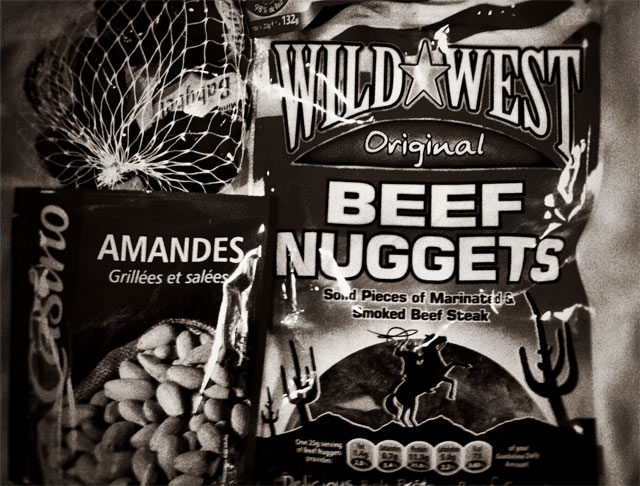So how did it go? Not to eat carbohydrates during week in Chamonix?
Here is a very unscientific and subjective summary of my experiences of hard effort, high altitude and LCHF. None of what I write below is any kind of recommendation or advice – just to be clear. There are many other knowledgeable people when it comes to LCHF so I just want to begin by affirming this 🙂
You, who have read my previous posts about nutrition and LCHF remember that I’m ”born and bred” on sugar. When you are exercising extra hard and extra-long, carbohydrates are the obvious energy. You will down anything from the energy drink during your exercise, to gels, chocolates, raisins and the like during your mountain trip.
At high altitude, this is even more the case. At high altitude, the majority of us find it a bit more ”difficult” to maintain the appetite and carbohydrates is relatively easy to use as an energy source. At high altitudes the carbs also tend to taste more than fat and protein which also makes it easier to replenish energy by these. Not to mention that carbohydrates require less oxygen than does fat when we want to use them as fuel and, as we all know, there are plenty of less oxygen at high altitude.
So, with sugar/carbs as first, second, third source of energy until today – how did I manage to completely give those up and instead settle for cheese, nuts and dried meat?
To begin with, this was not a real high-altitude stay because I was only a total of 4 days at high altitude. That said, it went brilliantly. 🙂 I experienced no (perceived) power loss even at extreme exertion. Summit day, I went in pretty much all the way without filling up with any energy, but felt that I had enough left throughout the whole day.
My values (oxygenation and heart rate) were actual bloody good at 3 800 metres, which was the last occasion when I measured. At that point I had a oxygenation of 90% and a pulse of 56 bpm – in fact it is the best value I’ve measured at this height. And I don’t think it has to do with my conditioning, because I have rather been on the lazy side when it comes to training lately. On the other hand, I am not sure if this has anything to do with the low carbohydrate diet at all, or not.
I usually average a weight loss of around 2-4 pounds a week during my mountain adventures. This was exactly what I managed to loose of this time also. It should be emphasized that I have never eaten so little during a week like I did this week.
This latter is of course nothing great and my lesson is that I must plan the diet very much more carefully than to just buy a load of dried meat and cheese. Shall I manage to spend six weeks in this manner I really need a well thought out ”menu”. This will be my greatest challenge.
In conclusion, this type of adventure – a week in the mountains at high altitudes, does not require any return to the traditional diet but you can rather safely proceed with the low carbohydrate diet. It feels surprising and also good. Unfortunately, it is still not that much to lean on from a “scientific” standpoint as a standard for a real high-altitude adventure.













